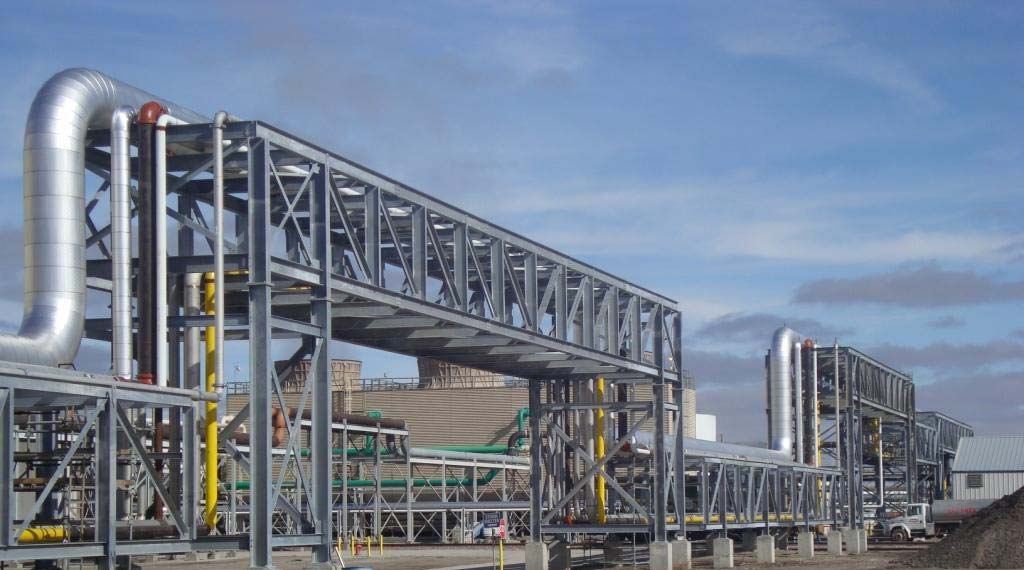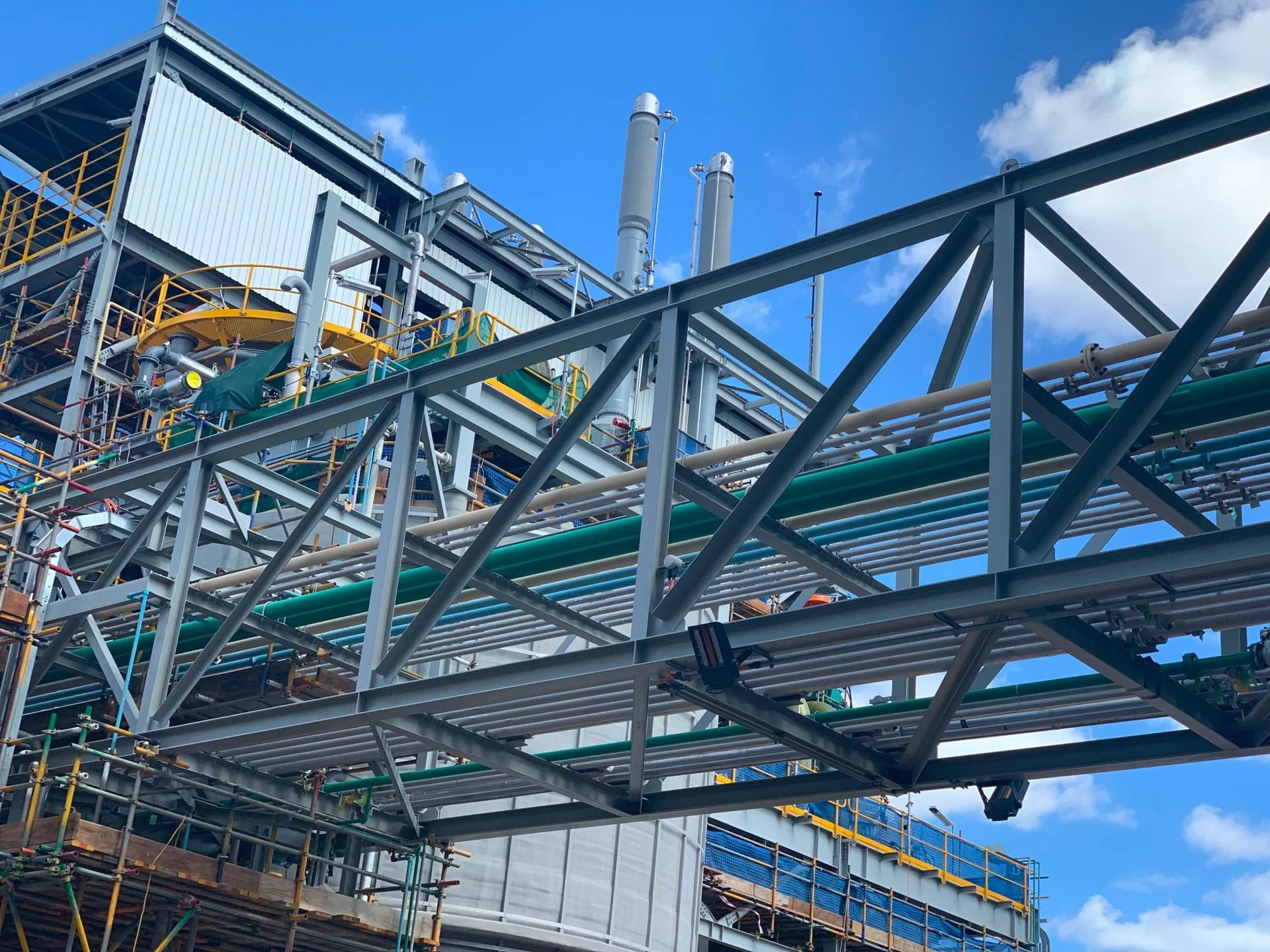
Pipe Rack Structure Design
Pipe Rack Design in India | KHAAS Design & Engineering
At KHAAS Group, we specialize in the structural design of Pipe Rack Structures—the critical backbone of industrial plants, refineries, power stations, and chemical facilities. Our team of experienced structural engineers delivers customized, cost-effective, and code-compliant designs that ensure the safe and efficient support of piping, electrical, and mechanical systems.
What is a Pipe Rack Structure?
Pipe racks are elevated steel structures used to support piping systems, power cables, instrument cable trays, and other utilities across industrial plants. They ensure organized routing and secure support while allowing for maintenance, flexibility, and future expansion.
Our designs are tailored to accommodate:
Multiple piping systems and utilities
Varying load combinations
Equipment support
Future expansion or modifications
Seismic, wind, and thermal stresses
Industries We Serve
Oil & Gas Refineries
Petrochemical Plants
Power Plants
Water Treatment Facilities
Pharmaceutical Industries
Food & Beverage Plants
Steel and Cement Industries
A Streamlined, End-to-End Design Process
Our approach to pipe rack structure design is built on a systematic and detail-oriented engineering workflow. We start with accurate 3D modelling, progress through rigorous structural analysis and design, and conclude with precise detailing ready for fabrication and construction. Each stage is fully integrated, ensuring code compliance, operational efficiency, and seamless project execution.
-
In the modelling phase, we develop a comprehensive 3D representation of the pipe rack structure using advanced structural software. This model includes all critical components — beams, columns, bracing systems, and support frames — and is built with precision to reflect real-world constraints and requirements.
Key aspects include:
Accurate geometry based on piping layout and routing
Integration with piping, cable trays, and equipment support layouts
Consideration of operational clearances and maintenance access
Coordination with other disciplines (civil, piping, mechanical)
Clash detection and resolution
Setup for load application and boundary conditions
The model serves as the foundation for analysis and detailing, reducing errors and rework downstream.
-
This stage involves rigorous structural analysis of the model under various load conditions to ensure safety, serviceability, and code compliance. Using software tools and manual checks, we evaluate:
Dead loads (self-weight, pipe weight, equipment)
Live loads and environmental loads (wind, seismic, thermal expansion)
Load combinations as per design codes
Lateral stability and deflection limits
Foundation reactions and support requirements
Member sizing and connection adequacy
Design optimization is performed to minimize material usage without compromising safety or performance. All designs are checked for constructability and future expansion.
-
Our detailing process transforms the analytical model into fabrication and construction drawings with clear, accurate, and standardized documentation. This includes:
General arrangement (GA) drawings of the pipe rack
Member schedule and material take-off (MTO)
Detailed connection drawings (bolted/welded)
Foundation and base plate details
Anchor bolt layouts and embedment plans
3D isometric views for better visualization
BIM integration and IFC export
We ensure that all detailing follows industry standards and client specifications, enabling smooth fabrication, reduced site errors, and efficient construction workflows.
Let’s Design Your Next Pipe Rack Project Together!
Your infrastructure deserves precision, safety, and scalability — and that starts with the right structural design partner.


